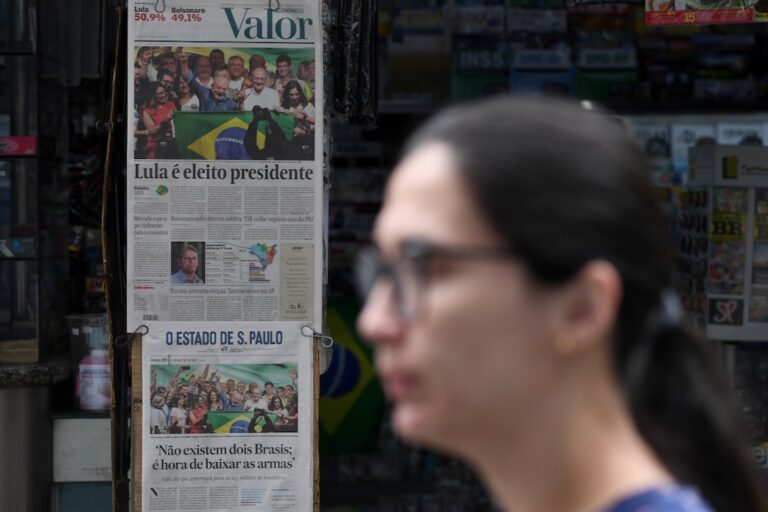During a forum in Brasilia, several jurists, lawyers and journalists agreed that Brazil does not need a new press law to regulate the media.
(IAPA/IFEX) – Miami, 1 June 2011 – Brazil does not need a new press law to regulate the media was the conclusion reached by several jurists, lawyers and journalists in response to attempts by Congress to pass new legislation replacing the 1967 law revoked in 2009.
The majority opinion, which also concluded that the right of reply should be a matter of self-regulation and not imposed by legislation, emerged from the forum held last Friday in Brasilia at the seat of the Supreme Federal Tribunal (STF), by the Inter American Press Association (IAPA) and the National Newspaper Association of Brazil (ANJ, for its acronym in Portuguese).
The event was inaugurated by the President of the STF, Cezar Peluso, who emphasized that “it would be impossible to underestimate the role played by press freedom in the consolidation of democracy.”
Judge Carlos Ayres Britto, vice president of the STF, stated that the 1967 Press Law and the 1988 Constitution were incompatible because the former was restrictive by nature and the second focuses on openness. He claimed that today’s increased press freedom has helped redirect the judiciary, which in the past has made shameful rulings in favor of censorship.
In the panel moderated by Ayres Britto, “Brazil After the Press Law”, Manuel Alceu Affonso Ferreira, attorney for the newspaper “O Estado de S. Paulo”, and Federal Deputy Miro Teixeira, from Rio de Janeiro, who in 2009 advocated the abolition of the Press Law by the STF, agreed that there should be no more regulations that restrict the practice of journalism. Teixeira said, “We do not need a press law, but rather a law providing access to public Information.”
This criteria for any new legislation was supported by Gustavo Binenbojm, a specialist in civil law, who added that “any law must be limited by what is stated in the Constitution – it should expand the freedoms therein and not the restrictions.”
(. . .)


